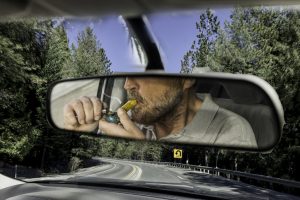
Drugged driving is a widespread problem in Maine.
Like alcohol, drugs hinder a person’s ability to safely drive a car. Prescription drugs, which are commonly used, are known to cause drowsiness, confusion, dizziness, and cognitive impairment. Marijuana may delay a driver’s reaction time and impair judgment of time and distance. Illegal narcotics may cause a driver to engage in reckless, aggressive and risky behavior.
How common is drugged driving in Maine?
Each year, Maine police arrest hundreds of drivers found impaired by alcohol and/or drugs. In 2018 alone, 7,538 arrests were made, according to ABC8.
Alcohol-impaired drivers caught driving with a blood alcohol content (BAC) level of 0.08 or higher are unlikely to be tested for drugs.
According to Lauren Stewart, director of the Maine Bureau of Highway Safety, nobody really knows how many drivers arrested for OUI were under the influence of drugs. Out of the 7,538 arrests made in 2018, only 311 urine samples have tested positive for drugs. Since the state is currently facing a seven-month backlog, this may not represent the actual number of drivers who tested positive for drugs.
Moreover, both alcohol and drug impairment fall under the same classification, so, out of the urine samples of drivers arrested, the bureau determined that drivers had THC, anti-anxiety medication, and prescription painkillers in their system. Many of the drivers arrested had more than one drug in their system.
"Some people are simply impaired on drugs whether it's legal, illegal, over the counter, prescription and then other people are using a combination of both alcohol and impairing drugs -- which is even worse," Stewart said.
Many of those found to be driving impaired didn’t actually abuse prescription drugs. According to Stewart, drivers can become impaired simply by failing to read the fine print on medications or taking prescription drugs incorrectly.
Maine is seeing an uptick of people abusing drugs and getting behind the wheel. In one fatal crash that occurred in May, the at-fault driver was found to have cocaine, THC, benzodiazepines, and opioids in his system.
Tackling the problem of drugged driving
State lawmakers are currently tackling the problem. A new bill will require the State Bureau of Identification to categorize all substances found during OUI arrests. The Bureau seeks to hire two new chemists in order to reduce the backlog of urine and blood testing at the Maine Department of Health and Human Services.
In order to prevent statewide drugged driving, the bureau released a list of commonly used drugs (both legal and illegal), how they impact drivers and what drivers should do if they use prescription medications.
If you or a loved one was injured in a crash with an impaired driver, get medical attention as soon as possible, and then get legal help from an experienced Maine car accident attorney. To get started, contact the Law Offices of Joe Bornstein today for a free and confidential consultation.



